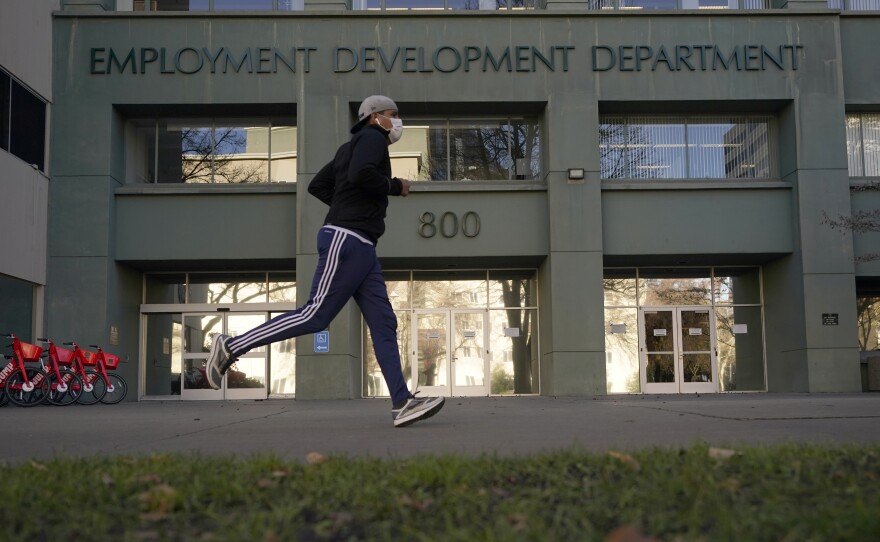Gov. Gavin Newsom signed new laws Tuesday to tighten security in the state's unemployment system after his administration OK’d billions of dollars in fraudulent payments during the pandemic while legitimate claimants languished in a backlog awaiting approval.
In its rush to approve unemployment benefits during a pandemic shutdown that put millions of people out of work, state officials approved billions of dollars in the names of people in prison — including some on death row — who were ineligible to receive them.
Meanwhile, thousands of legitimate claimants waited months for benefits to be approved, often frustrated they could not reach someone at the Employment Development Department's overwhelmed call centers.
An audit earlier this year blamed the Employment Development Department for “significant missteps and inaction” that cost taxpayers billions of dollars. Newsom has laid the blame at the federal government for dramatically expanding unemployment benefits in such a way that put them at significant risk for fraud.
People in prison are ineligible for unemployment benefits. But the Employment Development Department did not know who was in prison. At least 35 other states have had a system to cross-check unemployment claims against a list of prison inmates. But California wasn't one of them.
Newsom signed a law on Tuesday to fix that, requiring the California prison system to share the names and Social Security numbers of inmates with EDD.
“The government must do a better job as custodian of our hard-earned taxpayer dollars,” Assemblywoman Cottie Petrie-Norris, a Democrat and author of the bill, said last month when the bill passed the state Senate. “Due to a loophole in the current system, hundreds of millions of dollars were lost."
Newsom issued the nation's first statewide stay-at-home order in March 2020 because of the coronavirus pandemic. While the order helped California avoid an early surge of cases, it put millions of people out of work.
Since March 2020, California has received 25.2 million unemployment claims and paid more than $176 billion in benefits. But the agency has admitted that at least $11 billion of those payments were fraudulent, with another $19 billion suspected of fraud.
Many states have grappled with unemployment fraud during the pandemic.
In neighboring Arizona, state officials said last week that scammers pocketed nearly 30% of the $16 billion in unemployment insurance payments sent out since the start of the pandemic.
The inspector general’s office at the U.S. Department of Labor estimated in June that states will have improperly paid out more than $87 billion of the $873 billion in special COVID-19 unemployment benefits by the time they ended on Sept. 6.
This isn't the first time in recent years that California's unemployment agency has been overwhelmed by a surge in claims. The agency was swamped during the Great Recession a decade ago. prompted by a collapse in the housing market.
But a state audit from earlier this year found the agency still did not have a plan in the event of another economic downturn that would put millions of people out of work. The new law Newsom signed requires EDD to develop and implement a plan for future recessions.
“The EDD’s inability to promptly and efficiently respond to the increased amount of claimants is an issue that has spanned the administration of three governors of both parties,” Sen. John Laird, a Democrat and author of the law, said last month when the bill passed the Assembly. “But it is up to us now to make sure these problems are corrected."
Newsom also signed a law by Assemblyman Chad Mayes, an independent, that requires the agency to provide additional notification to people before disqualifying them from benefits.
Earlier this year, state lawmakers agreed to give the Employment Development Department hundreds of millions of dollars to address its backlog of claims. Lawmakers also ordered the department to begin offering claimants an option for direct deposit, which would prevent criminals from stealing benefit checks from mailboxes.





